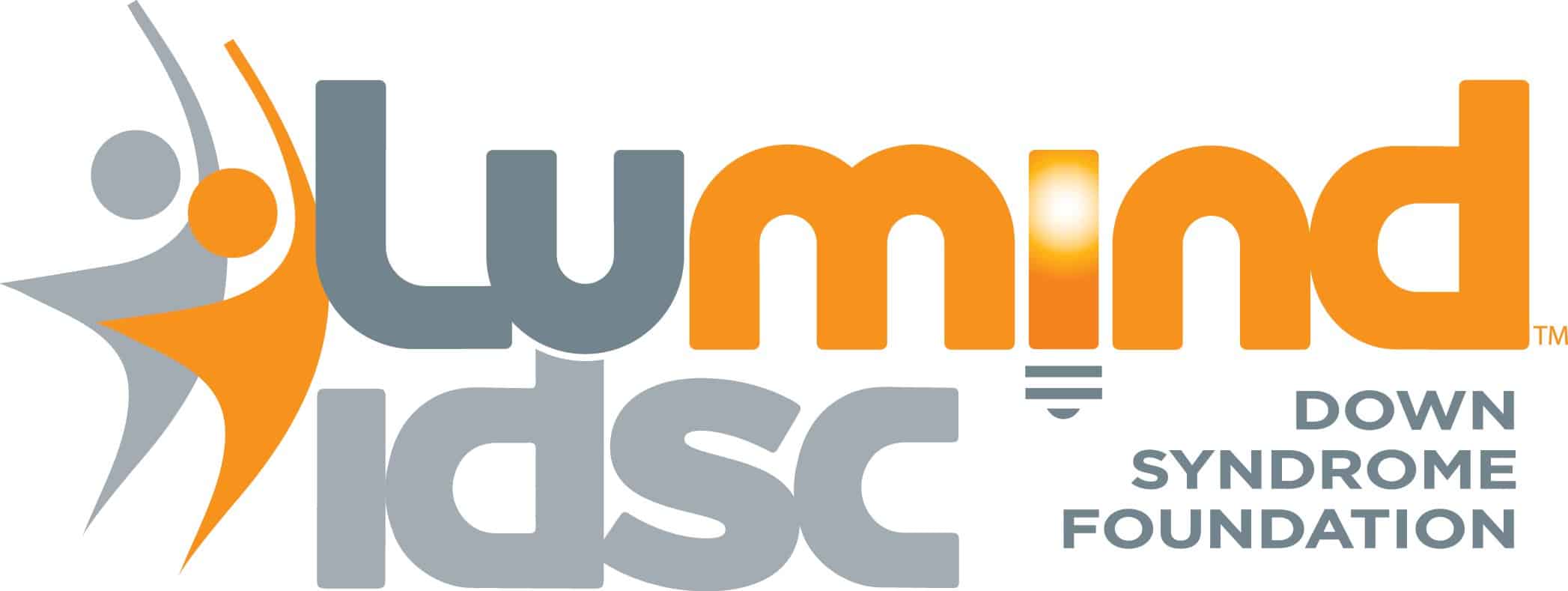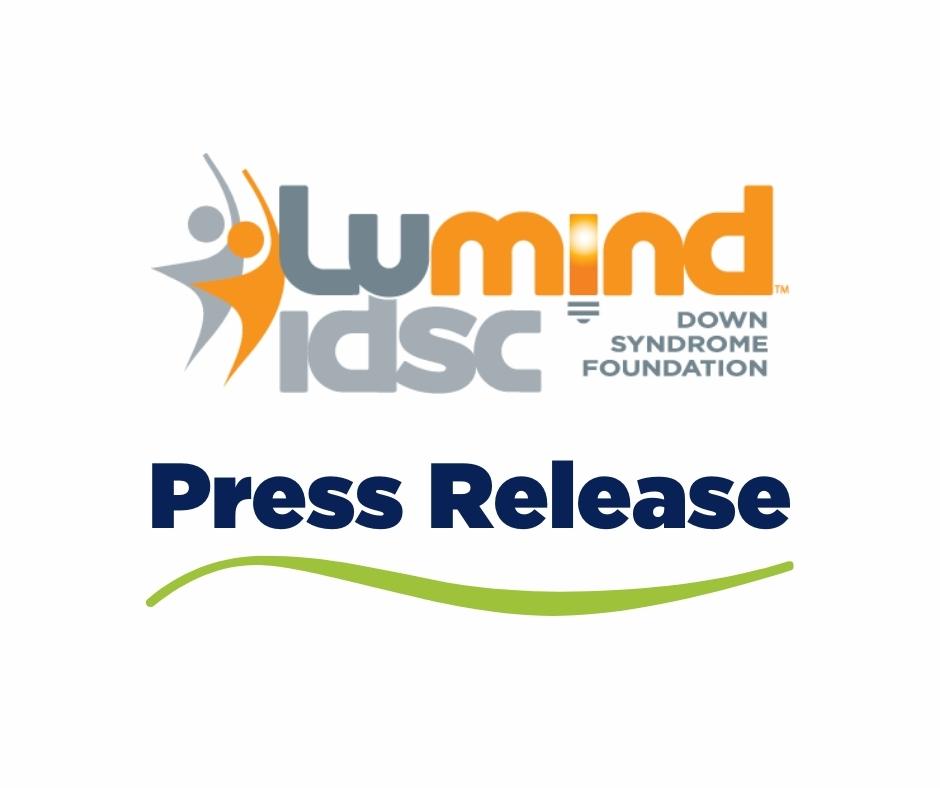Burlington, MA, (February 7, 2022)
LuMind IDSC Foundation is a nonprofit organization that envisions a world where every person with Down syndrome thrives with improved health, independence, and opportunities to reach their fullest potential. Our programs and initiatives, which are designed to serve our robust community of 275,000 individuals and caregivers, accelerate research into the unmet medical needs of people with Down syndrome.
Since 2004, LuMind IDSC has raised a total of $90M in funding research to prevent the onset of Alzheimer’s disease, improve cognition, treat sleep apnea, develop gene therapies, and advance understanding of the medical challenges associated with Down syndrome.
LuMind IDSC-funded research has contributed to the development of several Down syndrome-specific assessment scales, as well as supported more than 20 interventional and observational clinical trials, a natural history study of 270 people in ten states, and the establishment of the Down Syndrome Clinical Trial Network.
At the request of LuMind IDSC, the FDA in 2021 convened a Critical Path Innovation Meeting (CPIM) to discuss scientific advancements and unmet medical needs of Down syndrome associated Alzheimer’s disease (DS-AD). Our organization also leads the Down Syndrome Research Consortium, and aggressively pursues both mainstream and innovative therapeutic solutions to the Alzheimer’s disease crisis impacting the Down syndrome community.
Today, people with Down syndrome have a longer life expectancy (60+ years) than any generation before. Unfortunately, the wider Down syndrome community – parents, siblings, caregivers, and individuals with Down syndrome themselves – is beginning to understand the many ways an Alzheimer’s diagnosis and development of DS-AD symptoms is likely to change their quality of life, as early as their 40s and 50s. That is why Down syndrome researchers in academia, industry and non-profit organizations like ours are engaged in an ongoing quest for therapies, drugs, and diagnostic tools to better identify and slow the progression of DS-AD.
The APP gene that encodes the amyloid beta protein and the amyloid beta plaques is triplicated on Chromosome 21. Because LuMind IDSC research is guided by science and the scientific pursuit of discovery, our organization was cautiously optimistic about the treatment possibilities that the development of monoclonal antibodies directed against amyloid beta for the treatment of Alzheimer’s disease may bring to the Down syndrome community.
As you undoubtedly know, people with Down syndrome are far more likely than the general population to have an Alzheimer’s diagnosis by age 65, so access to a new class of Alzheimer’s drugs could not only help those with a current diagnosis but would also generate new data on the efficacy of this type of drug in people with Down syndrome. In addition, with the advent of a class of anti-amyloid drugs, our community could see a clear path forward to future combination therapies for DS-AD.
But the CMS draft decision significantly narrows coverage of that class of new drugs for the treatment of Alzheimer’s disease, it limits coverage to participation in clinical trials, and essentially blocks people with Down syndrome from accessing the new treatment. The CMS decision, if enacted, will place insurmountable roadblocks on the path to future treatment possibilities for anyone with a Down syndrome diagnosis.
This decision, if enacted, openly discriminates against people with Down syndrome, a group of people who have not been included in any of the previous or current clinical trials on Aduhelm or the other monoclonal anti-amyloid antibodies. If this draft decision becomes federal policy, CMS will not cover the Down syndrome population until the completion of a clinical trial where the drug can be shown to have a meaningful treatment effect. What CMS proposes will define a different standard than the FDA, take extra years, and require many more millions of dollars to come to fruition. For our small population, with very limited research funding available, this decision essentially bans an entire generation of people with Down syndrome from accessing these promising new treatments.
Our organization firmly believes CMS should abandon the proposed CED process for the class of anti-amyloid therapies. The CMS recommendation to apply CED protocol to current and future anti-amyloid drugs specifically prevents those with Down syndrome from participating in the CED program based on the exclusion criteria.
Having Down syndrome should not prevent a patient from accessing Alzheimer’s treatments, nor from being included in clinical trials to assess the potential efficacy and safety of a current or future treatment.
This decision would limit participation in anti-amyloid related clinical trials to people whose dementia treatment is covered by Medicare. CMS should be aware that many people with Down syndrome associated Alzheimer’s Disease (DS-AD) are also covered by Medicaid. Therefore, people covered by Medicaid or private insurance will not be eligible to participate in the CMS approved clinical trials nor to access government coverage for this class of treatments.
As a matter of health equity, if CMS covers Alzheimer’s treatments for any Medicare/Medicaid recipients, then it must cover these treatments for people with Down syndrome, who have a 90% lifetime risk of developing Alzheimer’s disease. When a physician determines that a treatment is right for a covered patient, that patient should have access regardless of race, ethnicity, religion, income, geography, gender identity, sexual orientation, or disability. Americans with Down syndrome have the same legal rights as any other American and CMS cannot treat them as second-class citizens.
LuMind IDSC strongly supports the development of new clinical trials to gather more data on Aduhelm and similar drugs from this class of therapies but people with Down syndrome need to be included in the research without the addition of further significant barriers by CMS. However, restricted clinical trials should not be the only avenue for families struggling with Alzheimer’s disease to gain access to new treatments. Broader access is needed. LuMind IDSC calls on CMS to change this draft decision to:
- Broaden CMS coverage of this and future drugs beyond clinical trials;
- Expand coverage to include all people with Down syndrome;
- Clarify that people under Medicaid would also be covered (not only under Medicare);
- Explicitly include people with Down syndrome in the coverage language.
People with Down syndrome, who live with a very high likelihood of developing Alzheimer’s disease, deserve to benefit from FDA-approved treatments, just like any other citizen of the USA.
LuMind IDSC’s official response letter was submitted to the CMS response system on Friday, Feb 4, 2022.


